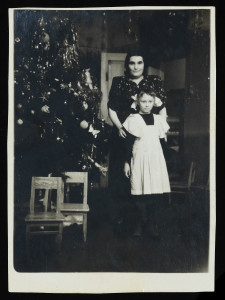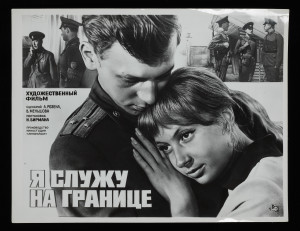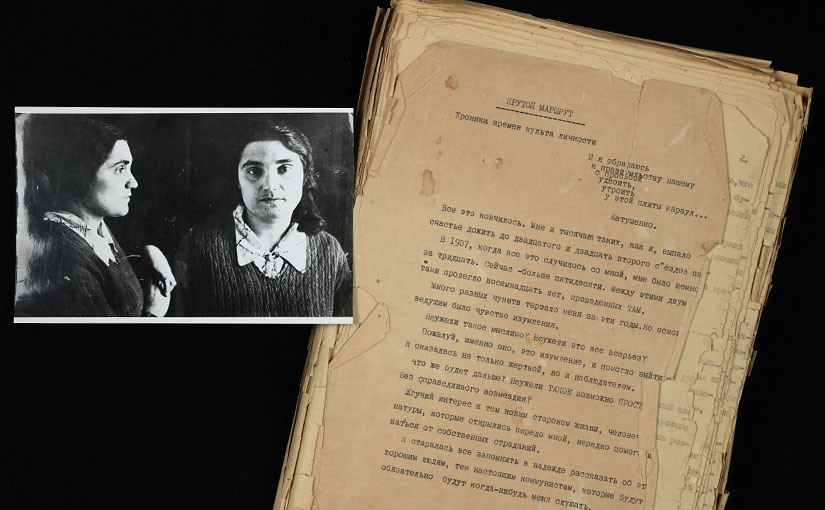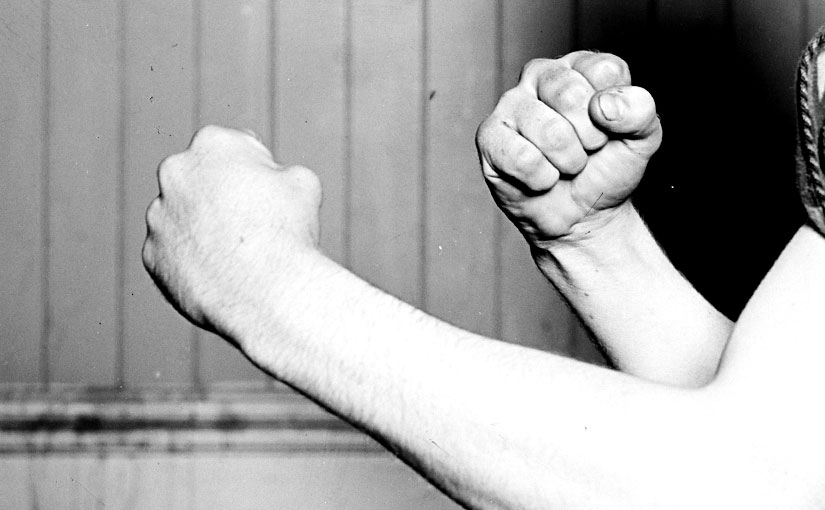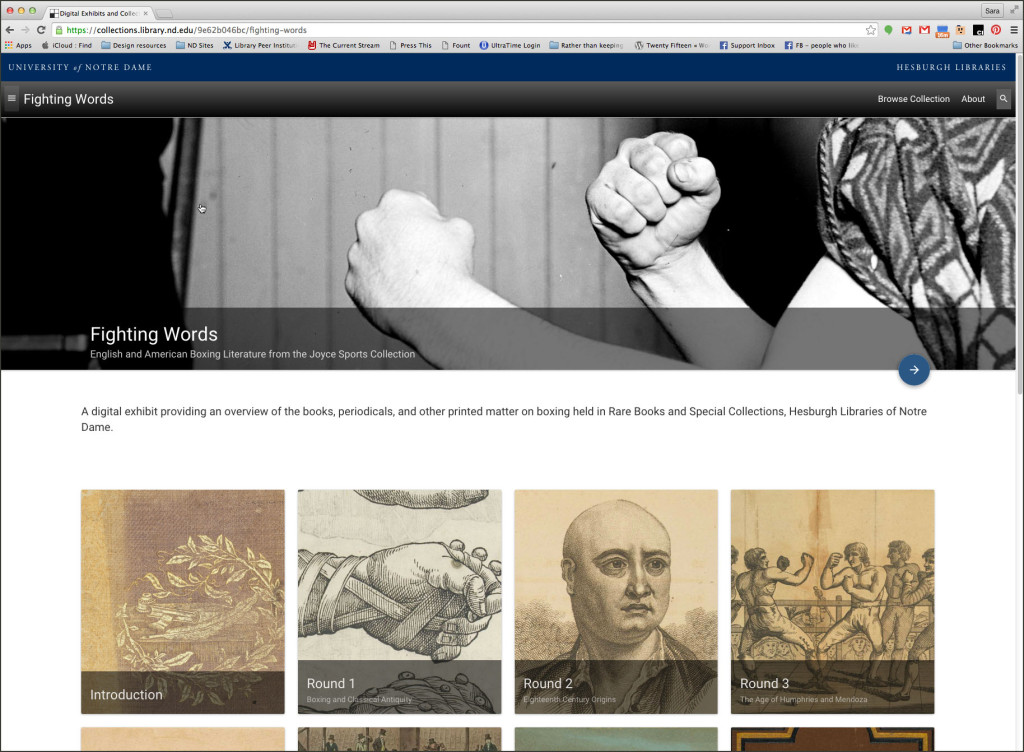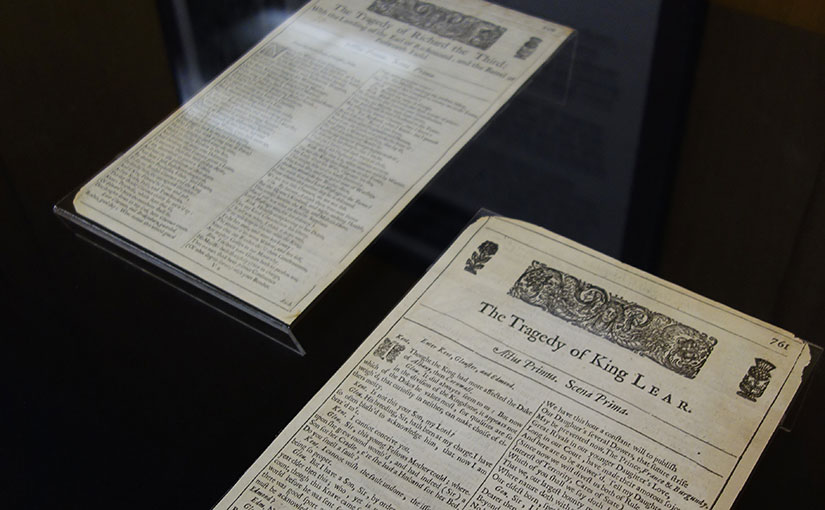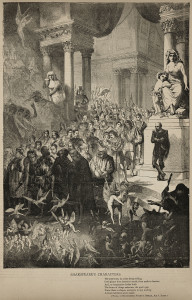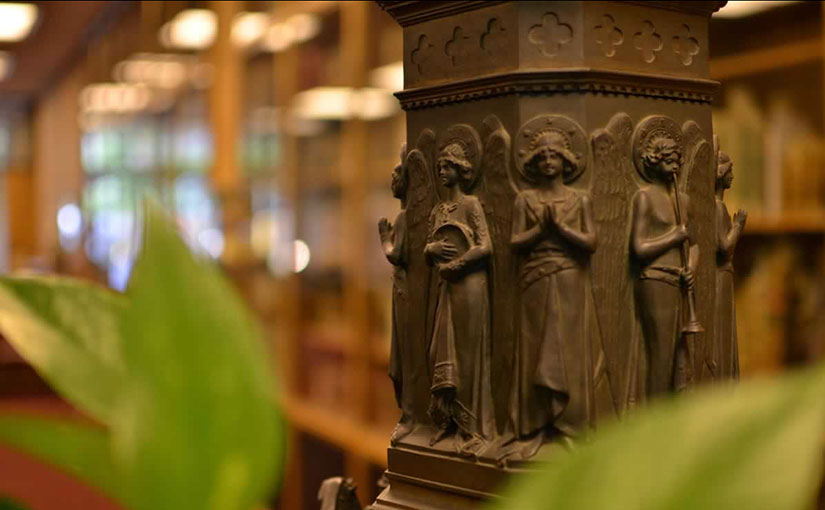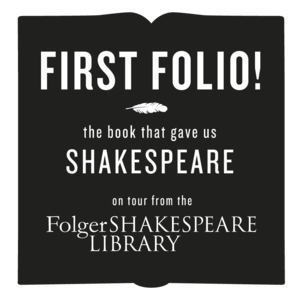 “First Folio! The Book that Gave Us Shakespeare” on tour from the Folger Shakespeare Library will arrive at Rare Books and Special Collections in the Hesburgh Library during the first days of 2016 as one of the first stops of the exhibit’s yearlong nationwide tour. The exhibit will open on Wednesday, January 6 with a special ribbon-cutting ceremony (read more below).
“First Folio! The Book that Gave Us Shakespeare” on tour from the Folger Shakespeare Library will arrive at Rare Books and Special Collections in the Hesburgh Library during the first days of 2016 as one of the first stops of the exhibit’s yearlong nationwide tour. The exhibit will open on Wednesday, January 6 with a special ribbon-cutting ceremony (read more below).
On-Going Exhibits
First Folio Exhibit
January 6th – January 29th
Rare Books & Special Collections (102 Hesburgh Library)
9:00am – 7:00pm Mondays through Fridays
noon – 5:00pm Saturdays and Sundays
Guided tours of the First Folio exhibit will be offered daily by Hesburgh librarians and curators — Monday, Wednesday and Friday at 3:30pm; Tuesday and Thursday at NOON; and Saturday and Sunday at 2:00pm.
Tours will meet by the entrance to Rare Books and Special Collections (102 Hesburgh Library, first floor). Reservations are not necessary. If you are planning to bring a group, please feel free to alert Rare Books and Special Collections directly about your visit: rarebook@nd.edu or 574-631-0290. Times are subject to change.
First Folio Banner, Costume Display and “Selfie Station”
January 3rd – end of January
1st Floor North Entrance Gallery, Hesburgh Library
View this self-guided exhibit whenever the library is open.
“Constructing Shakespeare” — a Spotlight Exhibit of RBSC Shakespeare Books
January 6th – January 29th
Rare Books & Special Collections (102 Hesburgh Library)
9:00am – 7:00pm Mondays through Fridays
noon – 5:00pm Saturdays and Sundays
Special Events
Ribbon Cutting Ceremony
Wednesday, January 6 at 4:16pm
1st Floor North Entrance Gallery, Hesburgh Library
In January, Shakespeare at Notre Dame kicks off “SHAKESPEARE: 1616-2016,” a yearlong series of performances, conferences and special events commemorating the 400th anniversary of William Shakespeare’s death and his legacy. The First Folio exhibit and Notre Dame’s year-long celebration officially launch at 16:16 (4:16 p.m.) Jan. 6 with the ribbon-cutting ceremony in the Hesburgh Library’s new North Entrance Gallery.
Formal remarks will precede the official ribbon cutting beginning with Scott Jackson (Executive Director of Shakespeare at Notre Dame), followed by Diane Walker (Edward H. Arnold University Librarian), Rev. John I. Jenkins, C.S.C. (President of the University of Notre Dame), Pete Buttigieg (Mayor of South Bend), and John T. McGreevy (I.A. O’Shaughnessy Dean of the College of Arts and Letters).
“Folio Fridays” Lecture Series
January 8 at 4:00pm | Printed Shakespeare: Quartos, Folios, and the History of Books by Jesse Lander (Chair, Department of English)
Rare Books & Special Collections, Hesburgh Library
January 15 at 4:00pm | Mobile Shakespeare by Elliott Visconsi (Chief Academic Digital Officer)
Rare Books & Special Collections, Hesburgh Library
January 22 at 4:00pm | Mr. William Shakespeare’s Comedies, Histories, & Tragedies by Peter Holland (McMeel Family Chair in Shakespeare Studies)
Rare Books & Special Collections, Hesburgh Library
January 29 at 4:00pm |Centuries of Shakespeare by Michael Witmore (Director, Folger Shakespeare Library)
Carey Auditorium, Hesburgh Library
All four 90-minute lectures are free, open to the public, and located within the Hesburgh Library.
Shakespeare Week: January 18–22
During the third week of the First Folio exhibit – Monday, January 18 through Friday, January 22 – there will be increased traffic from 9am–3pm. Shakespeare at Notre Dame will be leading 90-minute encounters with over 1000 students from throughout Indiana and Southern Michigan.
Please be aware that access to the First Folio exhibit and to Rare Books and Special Collections resources will be limited during this time.
